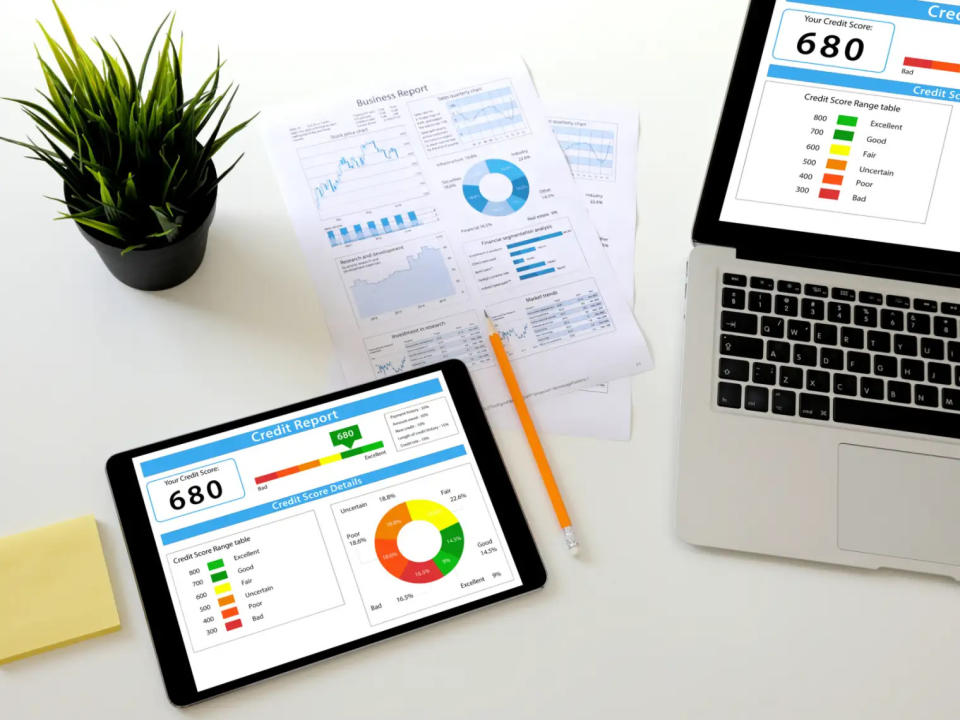How to Correct Credit Reports Errors Before Applying for a Mortgage

A low credit score is the second biggest reason people are denied mortgages, and sometimes it's caused by inaccurate information in consumer credit reports.
About 26% of all mortgage denials are due to credit issues, according to Nerdwallet. When Consumer Reports tasked nearly 6,000 volunteers with checking their credit reports, about one in three discovered at least one error.
Most people are not in the habit of checking their credit regularly. They find errors when it’s already too late: After they apply for credit. In the worst cases, they find out after they’ve decided to try to get pre-approved for a mortgage because they’ve found their ideal home.
Checking your credit report long before you look for homes is one of your most important responsibilities as a future homeowner. In the worst cases, such as when credit errors are caused by identity theft, it can take months or years to fully clean up your report.
Even if you’re a year or two away from buying a house, check your credit report now.
How to Get Your Credit Report
The first step to checking for credit report errors is to get your credit report.
There are nearly endless options online to retrieve your report. Many even claim to be free. However, keep in mind that most of these sites plan to monetize that “free” credit report one way or another – typically via advertisements based on your credit profile.
But there are two good ways to get your credit report that won’t cost you anything extra.
AnnualCreditReport.com
AnnualCreditReport.com is the only federally-mandated, truly free place to check your credit. You are entitled to one free credit report per year from each of the three main bureaus: Equifax, TransUnion, and Experian.
Currently, all three bureaus are offering one free report per week due to the Covid-19 pandemic.
This site won’t generate credit scores, but it will let you see all active accounts each bureau is reporting.
Your Credit Union, Bank, or Credit Card Company
More and more financial institutions are offering customers free credit reports, often including scores.
These reports typically don’t cost you anything above what you already pay for the service.
American Express, Chase, Citi, and Bank of America are just a few that offer free credit reports and scores which you can check right inside the respective platform.
Check for Errors
No matter where you get your report, the next step is to check it for errors.
Look through each account. Look for:
Accounts you don’t recognize
Late payments that you paid on time
Balances that look too high or credit limits that look too low
Accounts belonging to someone with a similar name
Signs of identity theft
Keep in mind that your report is a snapshot of your credit profile as it was up to 30 days ago. If you recently paid down a credit card or made a payment, that creditor may not have reported changes to the credit bureaus yet.
If you notice any bona fide errors, it’s time to fix them.
Dispute The Errors
You have the right to dispute incorrect information on your credit report. The credit bureaus must investigate errors you report.
This isn’t a license to dispute correct but harmful information. Sometimes a late payment is just a late payment. But truly erroneous data that is weighing on your credit score can be addressed.
First, gather any documentation that could help your case. For instance, if you made a credit card payment that was reported late, print a payment confirmation from the credit card online portal proving on-time payment.
If you checked your credit on AnnualCreditReport.com or directly on the bureau’s website, there should be a “dispute” link by each item on your online credit report.
If you checked your credit elsewhere, go to the disputing portal for each bureau that is reporting the error.
Submit the reason for the dispute and supporting documentation on each bureau’s website that is reporting the error. Keep in mind that each bureau won’t necessarily report the same error.
According to the Consumer Financial Protection Bureau (CFPB), credit bureaus have up to 50 days to investigate a dispute and report back to you. Not exactly speedy, but this is another good reason to check for errors long before you start looking for a home.
Also, contact the company where the error originated. Remember that the bureaus only have information reported to them by creditors.
Some errors will be easier to correct than others. Cases of identity theft could be very difficult to clear quickly.
Report ID theft to the proper authorities, not just the bureaus and creditors.
Errors That Hurt You Most as a Homebuyer
Not all errors will hurt you to the same degree. An incorrect address or slightly misspelled name on a credit report probably won’t hurt you.
But a single late payment on a credit card or auto loan can drop your score by 50 points or more.
Conventional loan rates are based on the borrower’s credit score. That 50-point drop could raise your mortgage rate by 1-2%, or $200-$400 per month on a $300,000 loan.
How’s that for motivation to fix errors (and make all payments on time)?
Here are errors that will hurt you the most.
Late payments
Collections
Higher credit card balance than you owe
Lower credit card limits than you are approved for
Accounts that are not yours
All these errors can drag down your score and have the double effect of adding to your debt-to-income ratios when you apply for a mortgage.
More from Mortgage Research News:
What Homebuyers Need to Know About Flood Insurance

 generic
generic 